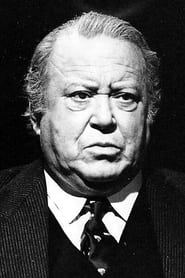 The Light Princess
The Light Princess
1978
 Quartet
Quartet
1948
 Land of the Pharaohs
Land of the Pharaohs
1955
 The Firechasers
The Firechasers
1971
 Mañana...
Mañana...
1957
 The October Man
The October Man
1947
 Cop-Out
Cop-Out
1967
 The Awakening
The Awakening
1954
 Waterfront
Waterfront
1950
 Flesh and Blood
Flesh and Blood
1951
 Oliver!
Oliver!
1968
 Band Waggon
Band Waggon
1940
 Keep It Clean
Keep It Clean
1956
 My Brother Jonathan
My Brother Jonathan
1948
 Lawrence of Arabia
Lawrence of Arabia
1962
 Morning Departure
Morning Departure
1950
 Passport to Pimlico
Passport to Pimlico
1949
 Aren't Men Beasts!
Aren't Men Beasts!
1937
 Sensation
Sensation
1936
 Your Witness
Your Witness
1950
 Sailors Three
Sailors Three
1940
 The Laughing Lady
The Laughing Lady
1946
 Don't Ever Leave Me
Don't Ever Leave Me
1949
 No Room at the Inn
No Room at the Inn
1948
 Woman Hater
Woman Hater
1948
 Sail Into Danger
Sail Into Danger
1957
 Vice Versa
Vice Versa
1948
 The Mark of Cain
The Mark of Cain
1947
 Gideon's Day
Gideon's Day
1958
 Go to Blazes
Go to Blazes
1962
 The Heart Within
The Heart Within
1957
 Night and the City
Night and the City
1950
 School for Secrets
School for Secrets
1946
 Captain Boycott
Captain Boycott
1947
 Helter Skelter
Helter Skelter
1949
 I Was Monty's Double
I Was Monty's Double
1958
 Come on George!
Come on George!
1939
 Not Tonight, Darling
Not Tonight, Darling
1971
 Royal Review
Royal Review
1953
 Once a Jolly Swagman
Once a Jolly Swagman
1949
 Four Sided Triangle
Four Sided Triangle
1953
 Trio
Trio
1950
 Murder in Soho
Murder in Soho
1939
 Abandon Ship
Abandon Ship
1957
 Gideon's Day
Gideon's Day
1958
 The End of the River
The End of the River
1947
 The 39 Steps
The 39 Steps
1959
 The Crimson Pirate
The Crimson Pirate
1952
 The Fallen Idol
The Fallen Idol
1948
 Burke & Hare
Burke & Hare
1972
 Beau Brummell
Beau Brummell
1954
 The Pickwick Papers
The Pickwick Papers
1952
 Always a Bride
Always a Bride
1953
 Port Afrique
Port Afrique
1956
 All Over the Town
All Over the Town
1949
 The Blue Lagoon
The Blue Lagoon
1949
 The Captain's Table
The Captain's Table
1959
 Touch and Go
Touch and Go
1955
 David Copperfield
David Copperfield
1969
 The Great Game
The Great Game
1953
 Big Fella
Big Fella
1938
 Marigold
Marigold
1938
 Silent Dust
Silent Dust
1949
 Dear Mr. Prohack
Dear Mr. Prohack
1949
 The Big Money
The Big Money
1958
 I'm A Stranger
I'm A Stranger
1952
 Out of the Fog
Out of the Fog
1962
 A Song for Tomorrow
A Song for Tomorrow
1948
 A Day to Remember
A Day to Remember
1953
 Song of Norway
Song of Norway
1970


























Comments